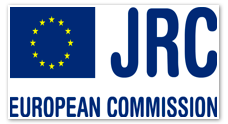Joint Research Center – Institute for the Protection and Security of the Citizen – JRC (EU)
The mission of the JRC is to provide customer-driven scientific and technical support for the conception, development, implementation and monitoring of EU policies. As a service of the European Commission, the JRC functions as a reference centre of science and technology for the Union. Close to the policy-making process, it serves the common interest of the Member States, while being independent of special interests, whether private or national. JRC is located on five different sites, the most important being that of Ispra in northern Italy.
This project will be carried out in JRC’s Institute for the Protection and Security of the Citizen (IPSC). IPSC provides scientific and technical support to EU security- and external relations related policies, particularly in the areas of global security & stability, border management, fight against terrorism and crime, as well as in nuclear, transport and energy security. For this purpose, IPSC applies its expertise and competencies in information and communication, space, open source and geo-spatial intelligence and analysis, information technologies as well as systems engineering and analysis.
JRC-IPSC has a leading position in satellite ship surveillance and oil spill detection.
Following the launch of FP7, IPSC started a new action “MASURE”, maritime surveillance. MASURE examines scientific and technical issues related to maritime safety and security, specifically with respect to maritime surveillance.
JRC-IPSC is involved in many European collaborative projects on maritime issues, most under GMES: FP5 IMPAST (fisheries monitoring by satellite; lead) and DECLIMS (ship detection by satellite; lead); FP6 LIMES (integrated monitoring for European security), TANGO (communications for earth observation) and MONRUK (oil spill detection in the Barents, Black and Caspian seas in collaboration with Russia, Ukraine and Kazakhstan); FP7 WIMAS (use of UAV for maritime surveillance in wide areas) and OPERAMAR (integration of maritime surveillance systems); ESA’s MARISS (maritime security services). And also involved in work for the Commission’s Maritime Policy Task Force (dedicated studies on maritime surveillance) and for FRONTEX – JRC played a major role in the BORTEC study (technical feasibility for a surveillance system of the EU’s southern maritime borders).








